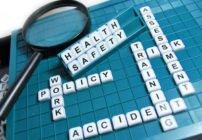It would be unfair, and inaccurate, to say that mental health is not taken seriously in society these days. Whatever shortfalls there may be in how it is dealt with, there is no doubt that most people realize mental health is a serious problem. While some people stubbornly refuse to treat it with the same rigour as physical health, they are in the minority and usually looking for a reaction.
However, perhaps because most mental illnesses are “invisible” (they cannot be tested for, they cannot be operated on and their impact is 99% internal), misconceptions still exist. Below, we’ll take a look at some of those misconceptions, and help to correct any gaps in understanding.
Antidepressants are “happy pills”
Often, the treatment plan for a person with depression will include talking therapy and prescription antidepressants. Both the patient and people around them may imagine that, with medication now prescribed, they’ll be well-adjusted and happy. That’s not how these things work. Antidepressants will smooth out the lows a depressed person experiences, but they won’t literally turn a frown upside down. They should give them the space to fight back to a more balanced place, though.
Mental health conditions make you unpredictable
Actual mental health issues are so commonplace as to be endemic in just about every society. People of your acquaintance can be in treatment for depression, anxiety, PTSD and other conditions without you knowing. Often, they don’t tell people because they are worried about the kid-gloves reaction they may get – as though they are prone to flying off the handle or dissolving into tears at any trigger. Sometimes, just talking to someone as you always used to will work wonders in bringing them out of themselves.
Treating anxiety needs to involve powerful medications
Many anxiety conditions are treated with the same mix of talking therapy (usually Cognitive Behavioral Therapy) and medication as depression. In the case of anxiety, those medications can include antipsychotic drugs which flatten the extremes of anxiety, but can also flatten everything else. More extreme cases may necessitate heavier medication, but for many anxiety sufferers the tinctures on offer at the likes of CBDistillery are very effective. Making decisions on medication should always be done in consultation with a doctor, but if a medication isn’t working for you, it is worth evaluating what’s on offer.
The opposite of “depressed” is “happy”
A major impact of depression is that it blunts a person’s affect. In other words, they rarely appear happy – but in truth, they don’t experience most emotions very deeply. More often than not, happiness, anger, curiosity, and other emotions disappear from a person with depression. Recovering from the condition, then, isn’t always about being “happy”. This is a double-edged sword, because people can experience spells of happiness and you may be convinced they’re over their depression, when they have a long way to go.
Equally, you may misinterpret their irritation at a situation as being a sign that they’re feeling worse, when all that is happening is that they are feeling their full emotional range again. In the case of a person with depression, anger is only a warning sign if it is sustained and excessive – like entering into a rage because there’s no coffee, or berating themselves for something minor.
Evaluating cases of mental illness is something that may require the input of a doctor – and even in the medical community opinions can differ. But making assumptions about people with such illnesses can go wrong, so it is always worth taking a step back.
Related Posts
- Health & Fitness
Food FactsDiet & Nutrition Mind & Body Exercise & Fitness
- The Importance of Looking After Your Hearing Health
Your hearing matters a lot and a mistake that you’ll certainly want to avoid making…
- Health Benefits of Wheat Grass Juice
Wheatgrass refers to the young grass of the common wheat plant, Triticum aestivum, that is…


















